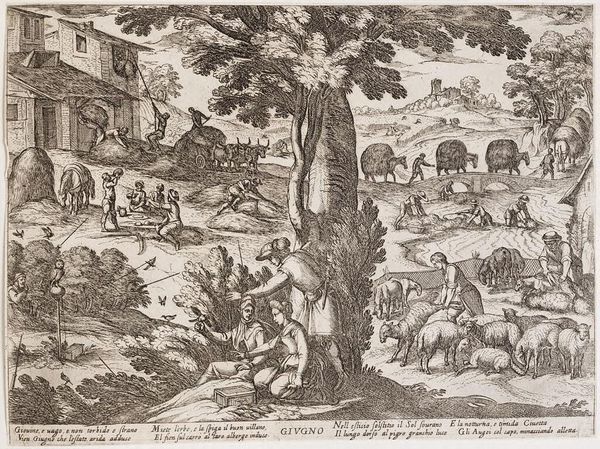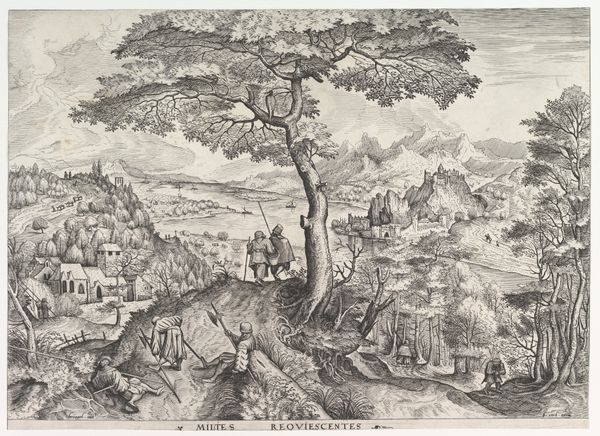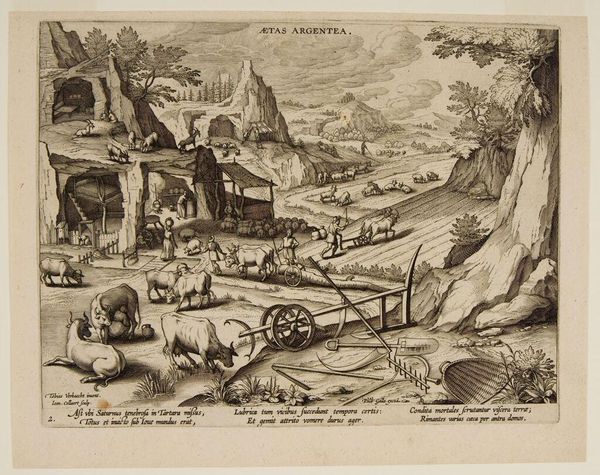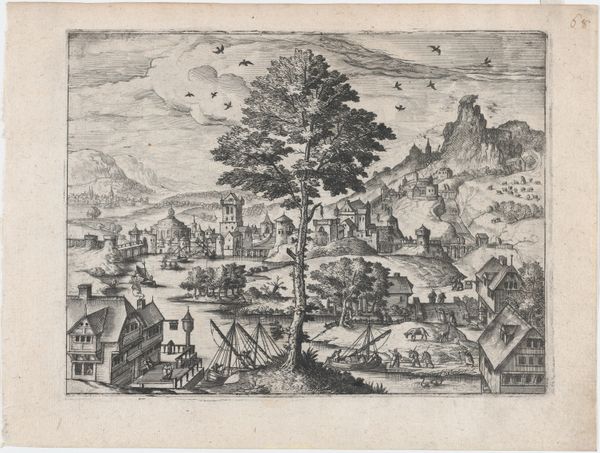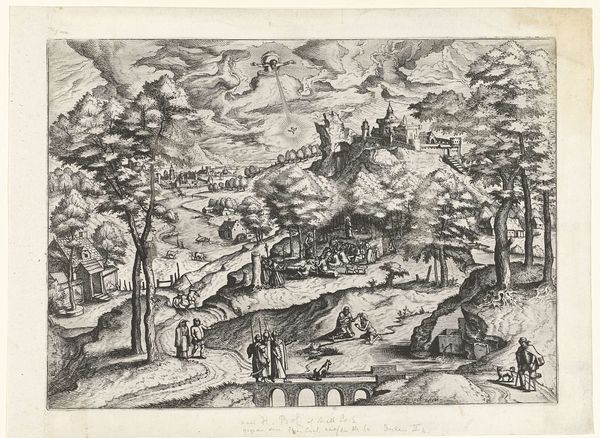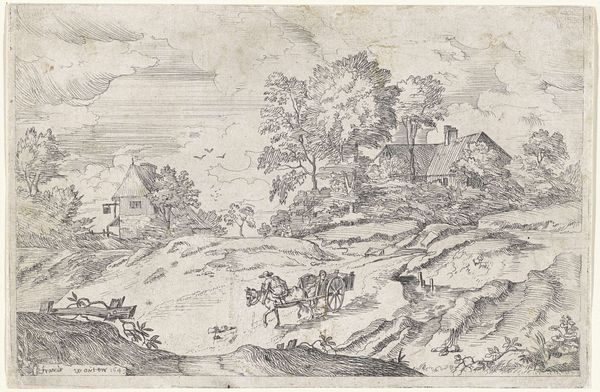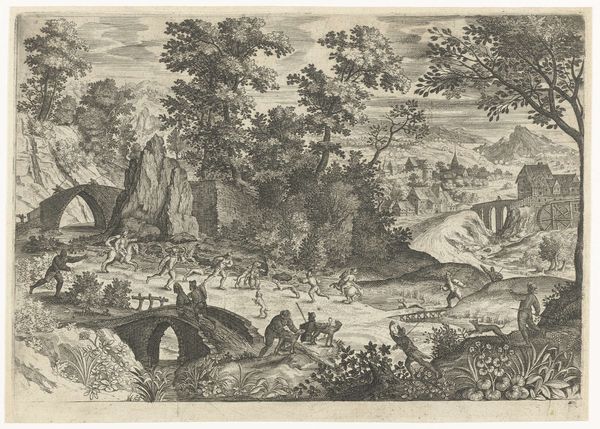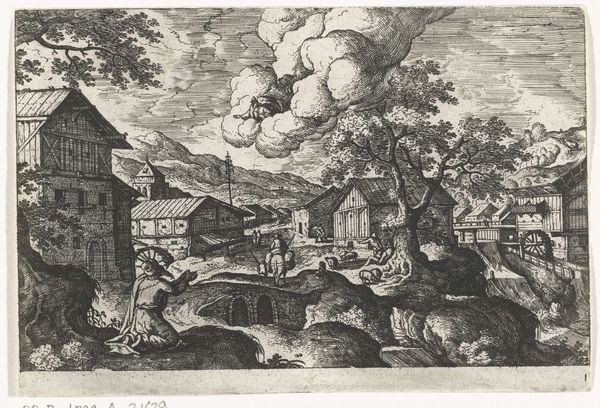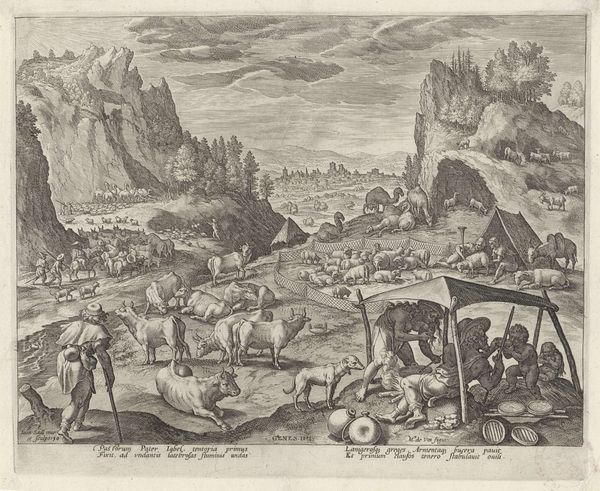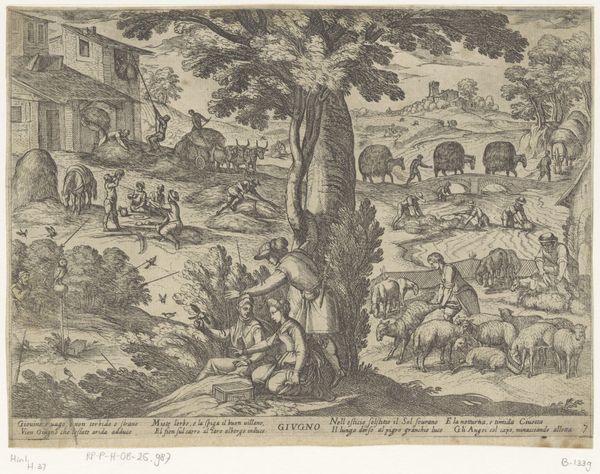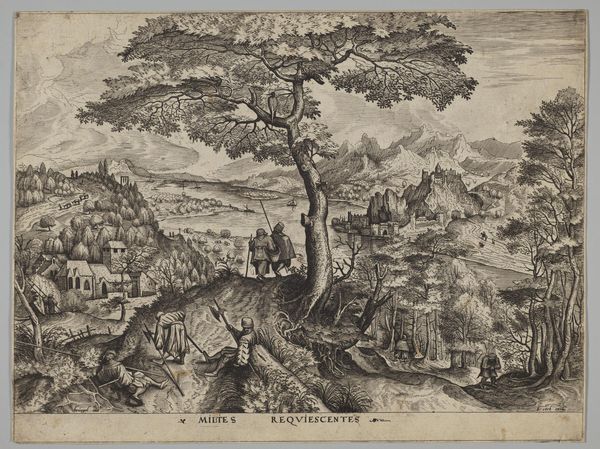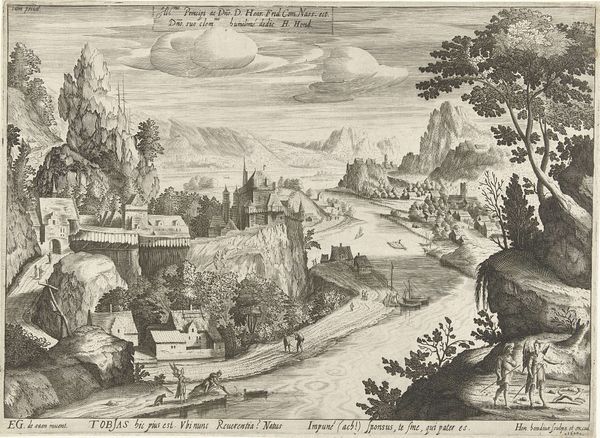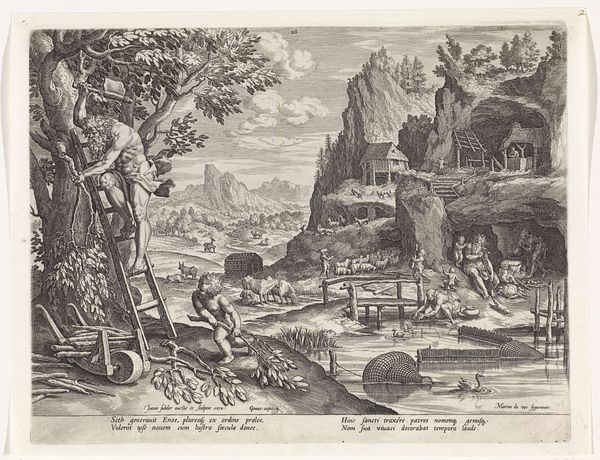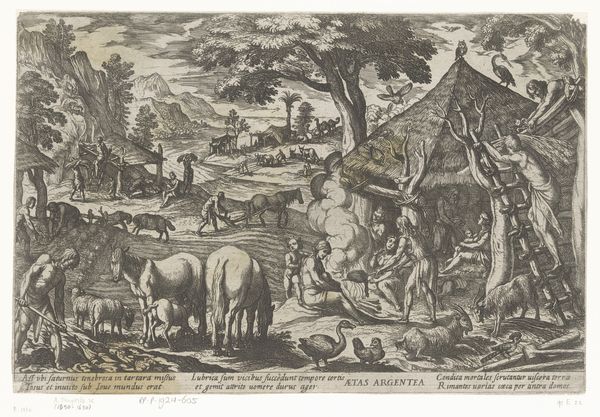
print, engraving
# print
#
landscape
#
figuration
#
genre-painting
#
northern-renaissance
#
engraving
Dimensions: height 200 mm, width 259 mm
Copyright: Rijks Museum: Open Domain
Jan Collaert II created the engraving, "Silver Age" sometime between 1586 and 1628. During this period in the Netherlands, there was an increasing interest in classical literature and mythology. This piece reflects the "Silver Age" of man described by the poet Ovid. In this imagined past, we see a move from a pastoral existence to one of agriculture and animal husbandry. Unlike the "Golden Age" which preceded it, the land must now be cultivated to sustain the people. The people in the image have a clear gendered division of labor, the women are tending to domestic duties, while the men are plowing the fields. There's a sense of labor replacing leisure, mirroring the changing societal structures of Collaert's time, as feudal systems began to give way to more commercial economies. Despite the utopian concept, there's an underlying melancholy, a recognition of the human cost of progress. Collaert invites us to consider what we gain and what we lose as societies evolve, a question as relevant then as it is now.
Comments
No comments
Be the first to comment and join the conversation on the ultimate creative platform.
